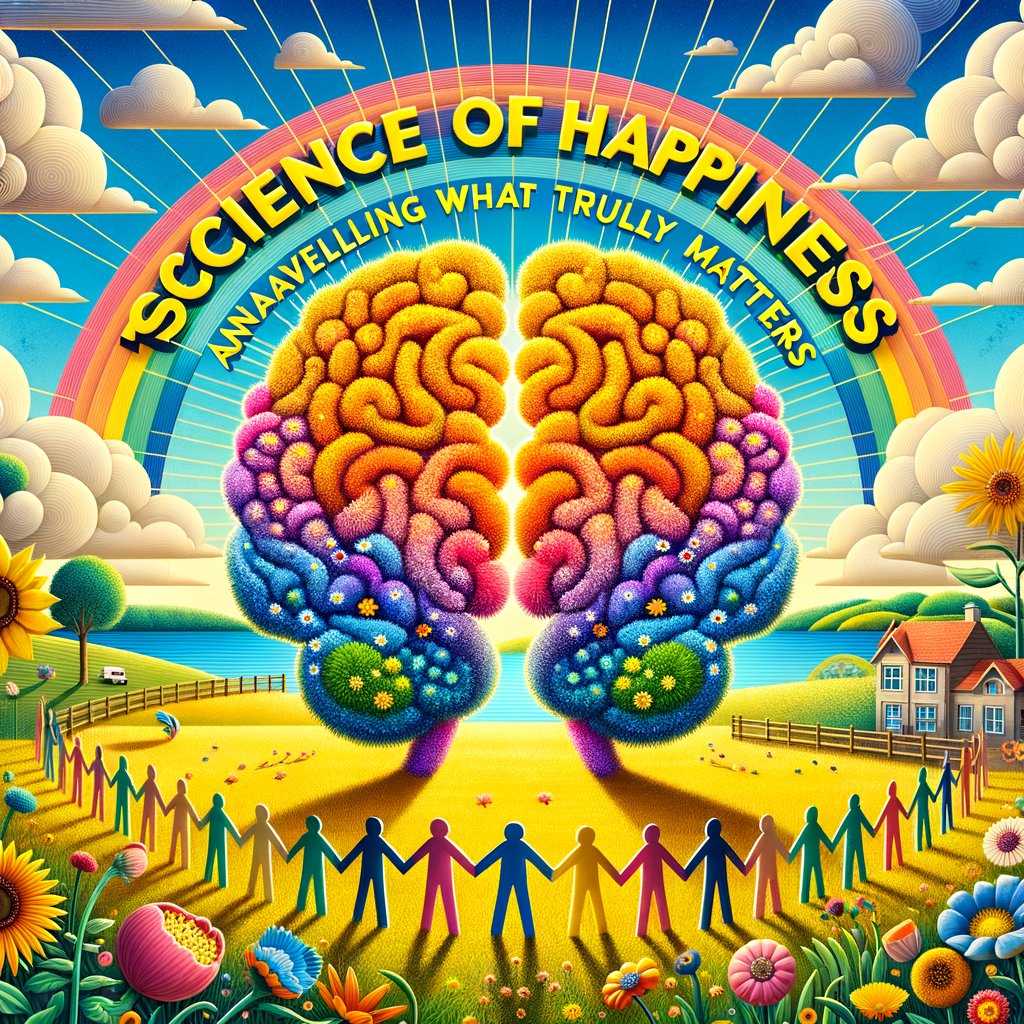Physical Address
304 North Cardinal St.
Dorchester Center, MA 02124
Physical Address
304 North Cardinal St.
Dorchester Center, MA 02124

Let’s dive into a topic that has been the focal point for philosophers, poets, and psychologists alike – happiness. It’s something we all chase, yet it remains elusive for many. So, what is the science behind happiness? And more importantly, what really matters in this pursuit?
Our brain is a complex machine that produces various chemicals responsible for our emotions. Serotonin, dopamine, oxytocin, and endorphins are often referred to as our ‘happiness hormones’. When these chemicals are released in our brain, they create feelings of joy, pleasure and satisfaction.
Serotonin regulates mood balance and contributes to overall wellbeing. Dopamine is associated with reward-driven behaviour and pleasure seeking. Oxytocin is known as the ‘love hormone’, playing a crucial role in bonding and building relationships. Endorphins are natural painkillers produced in response to stress or fear.
The way these hormones interact varies from person to person – hence why happiness can be so subjective. What brings joy to one individual may not have the same effect on another. This subjective nature of happiness makes it difficult for scientists to measure accurately.
So if everyone’s definition of happiness differs slightly, what factors consistently contribute towards it? Research suggests there are several key elements:
Strong social connections are vital for our mental health and well-being. Interacting with others releases oxytocin which helps us feel happier and less stressed.
Maintaining good physical health through exercise can boost your mood by releasing endorphins. It also improves self-esteem and body image, contributing to overall happiness.
Practising gratitude can significantly increase your happiness levels. It shifts our focus from what’s wrong in our lives to what’s going right, promoting positive feelings of contentment.
Having a sense of purpose or meaning in life is linked with greater satisfaction and happiness. This could be through work, hobbies, volunteering, or spiritual practices.
Research suggests that we all have a ‘set point’ for happiness – a baseline level of joy that we tend to return to after experiencing highs and lows in life. Some people naturally have a higher set point than others, but the good news is that it’s not fixed – we can gradually shift this baseline towards more positive emotions through consistent effort and practice.
In the quest for happiness, it’s important to remember that it isn’t an end goal but rather a continuous journey. It involves ups and downs, twists and turns – much like life itself! Embracing this concept can help us better navigate through life’s challenges without losing sight of our own wellbeing.
To sum up the science behind happiness; while genetics play a role, external circumstances only account for about 10% of our happiness levels. The remaining 40% is influenced by our daily activities and the conscious choices we make – showing us that while we may not have control over everything in life, we do hold significant power over our own happiness.
If there’s one thing you take away from this article let it be this: Happiness isn’t something that just happens to us – it’s something we can actively cultivate. So, let’s strive to understand our emotions, nurture our relationships, care for our physical health, practice gratitude and find purpose in life. After all, these are the things that truly matter in the pursuit of happiness.